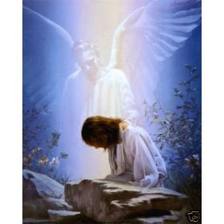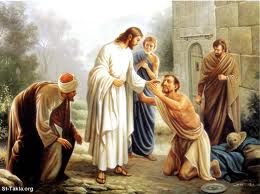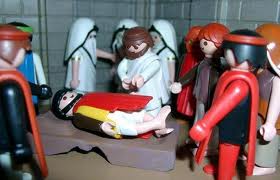
The Sabbath Day was part of the Israeli Covenant, but we are now living under the New Testament, and it’s faith and baptism that are the major signs for a follower of Jesus.
I think the best explanation for the need of a day of rest is found in Exodus 22. God created the heavens and the earth in six days for a reason, and that’s because he wanted to make it as a foundation for us – as a life pattern when it comes to work and rest. We should take the original creation week as an example to follow in our every day lives. If we didn’t have this work-6-days-and-rest-1-day-pattern, there is a risk we would work and struggle all days alike, especially if we would notice that “everyone else does it so why should I be any different? I don’t want to come across as lazy”.
Exodus 22:8 Remember the sabbath day, to keep it holy.9 Six days shalt thou labour, and do all thy work:10 But the seventh day is the sabbath of the Lord thy God: in it thou shalt not do any work, thou, nor thy son, nor thy daughter, thy manservant, nor thy maidservant, nor thy cattle, nor thy stranger that is within thy gates:11 For in six days the Lord made heaven and earth, the sea, and all that in them is, and rested the seventh day: wherefore the Lord blessed the sabbath day, and hallowed it.
The Sabbath was to be a sign between God and the children of Israel in the old testament, and it was very serious to break the law of the Sabbath. The death penalty applied! This might sound harsh for us today, but we must remember that the Israelites were supposed to mirror God’s light also unto the gentiles so if God would look between his fingers when it came to breaking his law all other people would get the message that it’s not a big deal whether to obey the God of Israel or not.
Exodus 12:5 Seven days shall ye eat unleavened bread; even the first day ye shall put away leaven out of your houses: for whosoever eateth leavened bread from the first day until the seventh day, that soul shall be cut off from Israel.16 And in the first day there shall be an holy convocation, and in the seventh day there shall be an holy convocation to you; no manner of work shall be done in them, save that which every man must eat, that only may be done of you.17 And ye shall observe the feast of unleavened bread; for in this selfsame day have I brought your armies out of the land of Egypt: therefore shall ye observe this day in your generations by an ordinance for ever.
Exodus 31:13 Speak thou also UNTO THE CHILDREN OF ISRAEL, saying, Verily my sabbaths ye shall keep: for it is a sign between me and you throughout your generations; that ye may know that I am the Lord that doth sanctify you. 14 Ye shall keep the sabbath therefore; for it is holy unto you: every one that defileth it shall surely be put to death: for whosoever doeth any work therein, that soul shall be cut off from among his people.15 Six days may work be done; but in the seventh is the sabbath of rest, holy to the Lord: whosoever doeth any work in the sabbath day, he shall surely be put to death.16 Wherefore the children of Israel shall keep the sabbath, to observe the sabbath throughout their generations, for a perpetual covenant.17 IT IS A SIGN BETWEEN ME AND THE CHILDREN OF ISRAEL FOR EVER: for in six days the Lord made heaven and earth, and on the seventh day he rested, and was refreshed.
The Jewish custom was, and still is today, to observe the Sabbath day on Saturday. There are also many references in the book of Acts about the early Christian church meeting together on a Saturday to pray and study the Scriptures, like in Acts 13:13-14, 16:13 and 17:2. Every mention of the Sabbath in the book of Acts are always in connection with Jewish worship on that day. Paul constantly went to the temple to preach (sometimes he was accepted and sometimes he was thrown out) and it was his strategy to try to reach the Jews in their own community where they were to be found. Peter said:
Acts 15:21 For Moses of old time hath in every city them that preach him, being read in the synagogues every sabbath day.
It’s possible that the first christians continued meeting on Saturdays (the Sabbath) the first few years since this is what they did as jews, but some believe the early church began meeting on Sundays soon after Christ rose from the dead in honor of the Lord’s resurrection – which took place on a Sunday (or the first day of the week). Many other divine events also happened on a Sunday. After Jesus’ resurrection whenever he met with his disciples and where the day is identified, it is never on the Sabbath but always the first day of the week!Others see the change to meet up on Sundays as a gradual progression over the course of history. Christian groups that adhere to a Sunday worship feel that the Lord’s command was not specifically for the seventh day but rather one day out of the seven week days (which would also make it the 7th day after six days of work). By focusing on worship on Sunday (what many refer to as “the Lord’s Day”) instead of Saturday, could symbolically represent the acceptance of Christ as Messiah and his broadening blessing and redemption from the Jews to the entire world. That’s not really a sinful reason to highlight Sunday instead of Saturday.
In Russian the word for Sunday is Воскресенье (Voskreseniye) which means“Resurrection”. In other Slavic languages the word means “no work”, for example Polish: Niedziela, Belorussian: Нядзеля, Croatian: Nedjelja, Serbian and Slovenian: Nedelja, Czech: Neděle,Bulgarian: Неделя. The Modern Greek word for Sunday, Κυριακή, derives from Κύριος (Lord) also, due to its liturgical significance as the day commemorating the resurrection of Jesus Christ, i.e.The Lord’s Day. (Wikipedia)
Acts 2:46 tells us that from the start, the church in Jerusalem met every day in the temple (that’s also where the jews were) and gathered to break bread together in private homes:
Acts. 2:46 And they, continuing daily with one accord in the temple, and breaking bread from house to house, did eat their meat with gladness and singleness of heart,47 Praising God, and having favour with all the people. And the Lord added to the church daily such as should be saved.
Paul instructs the churches to meet together on the first day of the week (Sunday) to give offerings. Traditionally Sunday has always been considered as the first day of the week. If they met up to make such collections, why not take the chance to worship during the same occasion since they were all gathered together? If Saturday was considered THE day of worship, wouldn’t it make more sense for Paul to make a collection during this day since the christians were already gathered?:
1 Cor. 16: 1 Now concerning the collection for the saints, as I have given order to the churches of Galatia, even so do ye.2 Upon the first day of the week let every one of you lay by him in store, as God hath prospered him, that there be no gatherings when I come.
When Paul met with believers in Troas to worship, preach to them and break bread with them, they gathered on the first day of the week:
Acts 20:7 And upon the first day of the week, when the disciples came together to break bread, Paul preached unto them, ready to depart on the morrow; and continued his speech until midnight.8 And there were many lights in the upper chamber, where they were gathered together
Jesus explains that the Sabbath is made for man and not man for the sabbath. This could mean that the disciples shouldn’t view the Sabbath day as an obstacle for them but rather arrange their lives in such a way so that they could honor it without having to feel it makes things difficult for them and is a burden in their lives. Today we should approach the day of rest wisely and avoid falling into any ditch. The Apostle John refers to the Lord’s Day (“kuriake hemera“) in Rev. 1:10. “Kuriake“, meaning “Lord’s,” later became the Greek word for Sunday. Jesus claimed to be the Lord of the Sabbath, and that day fell on the seventh day. The majority of Christians observe Sunday as the Lord’s day:
Mark 2:23 And it came to pass, that he went through the corn fields on the sabbath day; and his disciples began, as they went, to pluck the ears of corn.24 And the Pharisees said unto him, Behold, why do they on the sabbath day that which is not lawful?25 And he said unto them, Have ye never read what David did, when he had need, and was an hungred, he, and they that were with him?26 How he went into the house of God in the days of Abiathar the high priest, and did eat the shewbread, which is not lawful to eat but for the priests, and gave also to them which were with him?27 And he said unto them, The sabbath was made for man, and not man for the sabbath:28 Therefore the Son of man is Lord also of the sabbath.
We are not bound by a certain day
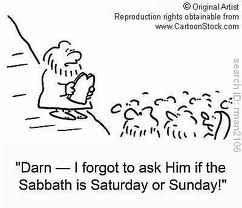
Jesus is the fulfilling of the Old Sabbath and our rest is in Him. We now commit to that rest as we continue in the faith.
Romans 14 shows that there is personal freedom regarding the observance of holy days. Some might suggest that this passage is only about FOOD, but I wouldn’t be too sure about that. Paul starts off warning about “doubtful disputations” and that seems to be the core of his argument. He provides the subject of food as his first example of where disputations might occur, and his point is that we should not judge each concerning minor issues such as meat or fasting but let God be the judge. Paul says in Rom. 14:3 that those who eat meat are not better or worse than those who do not eat meat (so judging is out-of-place), but in 1 Cor 8 he has a slightly different point because there he explains that our conduct can affect other people’s spiritual safety. So we should still think about our behavior so we won’t cause others to fall:
1 Cor. 8:8 But meat commendeth us not to God: for neither, if we eat, are we the better; neither, if we eat not, are we the worse.9 But take heed lest by any means this liberty of yours become a stumblingblock to them that are weak.10 For if any man see thee which hast knowledge sit at meat in the idol’s temple, shall not the conscience of him which is weak be emboldened to eat those things which are offered to idols;11 And through thy knowledge shall the weak brother perish, for whom Christ died?12 But when ye sin so against the brethren, and wound their weak conscience, ye sin against Christ.13 Wherefore, if meat make my brother to offend, I will eat no flesh while the world standeth, lest I make my brother to offend.
In Rom. 5 Paul proceeds with his second example when it comes to “doubtful disputations” and brings up the way we regard “days”:
Rom. 14:4 Who art thou that judgest another man’s servant? to his own master he standeth or falleth. Yea, he shall be holden up: for God is able to make him stand. 5 One man esteemeth one day above another: another esteemeth every day alike. Let every man be fully persuaded in his own mind.6 He that regardeth the day, regardeth it unto the Lord; and he that regardeth not the day, to the Lord he doth not regard it. He that eateth, eateth to the Lord, for he giveth God thanks; and he that eateth not, to the Lord he eateth not, and giveth God thanks.
His point is still that we should not judge each other concerning minor issues:
Rom. 14:9 For to this end Christ both died, and rose, and revived, that he might be Lord both of the dead and living.10 But why dost thou judge thy brother? or why dost thou set at nought thy brother? for we shall all stand before the judgment seat of Christ.
Also in Col. 2 Christians are instructed not to judge each other regarding the Sabbath days. This might suggest the early christians had already been judged for their different observances of Sabbath and festivals.
Col. 2:16 Let no man therefore judge you in meat, or in drink, or in respect of an holyday, or of the new moon, or of the sabbath days:17 Which are a shadow of things to come; but the body is of Christ.
This covers:
• days (weekly Sabbaths, corresponding to “Sabbath days”)
• months (new moons, corresponding to “a new moon”)
• seasons (the 7 feasts, corresponding to “festivals”)
• and years (the sabbatical year and the 50th year of Jubilee)
In Galatians 4, Paul is concerned about Christians who are turning back like slaves to legalistic observances of special days:
Gal. 4:9 But now, after that ye have known God, or rather are known of God, how turn ye again to the weak and beggarly elements, whereunto ye desire again to be in bondage?10 Ye observe days, and months, and times, and years.11 I am afraid of you, lest I have bestowed upon you labour in vain.
We should be “fully convinced” that whichever day we choose is the right day for us to set aside as a day of worship, and we should not judge or allow anyone to judge us regarding our choice.
How important is Sabbath TODAY?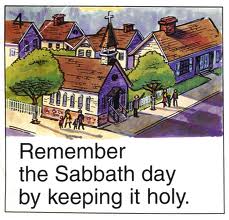
A person who is born today (2012) will notice when he grows up that SUNDAY is the day when christians normally meet for worship. That’s the case in Scandinavia, the rest of Europe and throughout the whole world – with a few exceptions. So the vast majority of christians. Can we really require that this person must study church history (to find out that we are supposed to celebrate Sabbath on a Saturday) in order to get essential knowledge about Jesus Christ?! This person might not even like to read books, and particularly not about church history and about how jews and christians celebrated the Sabbath 2,000 years ago. One would think that Jesus would have offered us some light in the matter if it was so important to get the days straight, but the main memory we have about Jesus in relation to the Sabbath day is that he broke it. We DO know that it’s important to assemble together with other christians and to live holy! Is it EXTREMELY IMPORTANT that we try to make the christian world start worshiping on Saturdays instead of Sundays, and why? Who is the one getting annoyed when we listen to the exact same sermon on a Sunday instead of Saturday? Paul helped us in his letters by providing us instructions for how to behave in church, but he didn’t mention that there is a particular day that we must meet on.
There are many countries and cities where christians are scarce and that means that there are not that many churches to choose between for worship and fellowship. We can only select among the best churches available. If you insist on that Saturday is THE day to celebrate a Sabbath, then you can of course try to contact the pastor in a church and ask him if he would consider persuading the elders to have church services on Saturdays instead of Sundays. I doubt you will succeed though! And if you have not succeeded, and if there are no other churches available, will you stay home alone? And how Biblical is THAT (to stay away from meetings with other christians)?
When we try to find the best church available in our area, is the question of the Sabbath really that important? Isn’t it more important to investigate what the pastors teach in the church (whenever they do teach), and if the pastors highlight repentance, salvation in Jesus Christ, the blood on the cross, the importance to make other disciples, the spiritual gifts, righteousness, etc? It’s also important to avoid churches which don’t have the Bible as their solid foundation but base their teachings on a person. Of course pastors are bound to color Bible texts with their own understanding (this is what preaching entails), but if they use other scriptures or texts apart from the Bible then we must be on our guard. I’m of course not saying it’s wrong to bring up wise words (or entire sermons) from other christians who have gone before them as long as they are Biblical, but I’m only warning about false prophets who bring in heresy into church and possibly also division.
Society looks completely different today than it did 2,000 years ago. Today it’s common for a family to have both parents working full-time and at a good stretch from home, and that means they might very well be away from home about 11 hours/day (including lunch hour and time for commuting). On top of this they might have to pick up their kids from the daycare center before hurrying home to fix dinner (using groceries that perhaps someone else in the family had time to buy after his/her work or school). For most people they have no option to get an alternative life style since the job that are offered are full-time or no time, and they do need to get a salary to get food on the table and to pay taxes. Needless to say, that when Saturday finally arrives they are very tired and prefer to sleep in late, clean the house, wash clothes, visit parents/relatives and spend some time with the kids. Some also take the chance to go shopping on Saturday, believing Sunday is the day of rest and a day which should not be used for shopping. This mean that they are better prepared in all sorts of way for a worship together with other christians on Sunday, and they might even feel like bringing friends home after the church service because the house is in order after a week’s mess. Had the day of special worship been on a Saturday it could tempt weak christians to stay home from church altogether. Again, Sabbath is made for man and not the other way around. If a village that is blessed to have a church (meaning they have a group of christians in this village), and the church has an arrangement that works very well among them and which isn’t against the Bible in any way, then why not keep it that way?
Can we blame Constantine for that we worship on Sundays?
Constantine is oft blamed for various things, such as the idea that we believe in the trinity due to him, but the change of day was not instituted by him or the pope centuries after the apostles nor was it made to replace the Sabbath day. Some Sabbatarians particularly have the council of Laodicea in mind, held in 364 A.D. There is much historical evidence to show Sunday worship was a universal practice of all the churches outside the land of Israel by the beginning of the 2nd century. What did take place at that Council was an anti-semitic move to make it illegal for christians to worship on Saturday. There were thousands of christians already worshiping on Sundays.
“Anti-Judaism played its part in second-century Christian polemic against Jewish Sabbath observance, but it does not follow that it motivated the introduction of Christian Sunday worship. For we have already argued that Sunday worship dates back to the first century, while few second-century writers compare and contrast the Jewish Sabbath and the Christian Sunday. Derogatory discussions of the Jewish Sabbath do not usually refer to the Christian Sunday. If Sunday were a recent substitute for the Jewish Sabbath, we should expect far more discussion of the superiority of Sunday to the Sabbath.” R. J. Bauckham, From Sabbath to Lord’s Day, p. 271, edited by D.A. Carson.
The old church fathers also promoted worship on a Sunday
Philip Schaff (a noted historian) writes in the Schaff- Herzog Encyclopedia of religious knowledge 1891 Ed., vol.4 Article on Sunday.
“Sunday… was adopted by the early Christians as a day of worship.. . Sunday was emphatically the weekly feast of the resurrection of Christ, as the Jewish Sabbath was the feast of creation. It was called the Lords day, and upon it the primitive church assembled to break bread. No regulations for its observance are laid down in the new testament nor, indeed, is its observance even enjoined. Yet Christian feeling led to the universal adoption of the day, in imitation of the apostolic precedence. In the second century its observance was universal.”
In other words these meetings were not to replace the Sabbath but held as a whole new day. There is a view that the Sabbath commemorated a finished creation with rest and the first day commemorates a finished redemption and a new work. The Sabbath is then a day of rest and quiet and the first day is a day of worship and praise. Sabbath means rest, not Saturday.The New Testament Church saw Sunday not as the substitute and replacement for the Jewish Sabbath. Sunday was not seen as a modification or as a new Sabbath, but as a day that stood on its own merits having its own meaning.
The epistle of Ignatius, AD 107
“Be not deceived with strange doctrines, nor with old fables, which are unprofitable. For if we still live according to the Jewish Law, we acknowledge that we have not received grace….If, therefore, those who were brought up in the ancient order of things have come to the possession of a new hope, no longer observing the Sabbath, but living in the observance of the Lord’s Day, on which also our life has sprung up again by Him and By His death.”
Barnabas, 120 AD
“Wherefore, also, we keep the eighth day with joyfulness, the day, also, on which Jesus rose again from the dead”
The writings of Justin Martyr, AD 145-150 Justin’s ‘Apology’ was written at Rome about the year 140, only 44 years after the apostle John received the vision of The Revelation at Patmos. The Schaff-Herzog Encyclopedia of Religious Knowledge says this about Justin’s works:
“In these works Justin professes to present the system of doctrine held by all Christians and seeks to be orthodox on all points. The only difference he knows of as existing between Christians concerned the millennium. Thus Justin is an incontrovertible witness for the unity of the faith in the Church of his day, and the fact that the Gentile type of Christianity prevailed.” Quoted by Canright in The Compete Testimony of the Early Fathers, Fleming H. Revell, 1916, pp. 24-25.
NOTE: At this early date, AD 140, the only major difference among Christians was concerning the millennium. At that time they had no disagreement in keeping Sunday, and as you will see, Justin says that was the day on which all Christians worshipped.
In chapter 67 of his first Apology, entitled, “Weekly Worship of the Christians” writing to the pagan emperor, Justin states:
“…we bless the Maker of all through His Son Jesus Christ, and through the Holy Ghost. And on the day called Sunday, all who live in cities or in the country gather together to one place, and the memoirs of the apostles or the writings of the prophets are read, as long as time permits; then, when the reader has ceased, the president verbally instructs, and exhorts to the imitation of these good things. Then we all rise together and pray, and, as we before said, when our prayer is ended, bread and wine and water are brought…But Sunday is the day on which we all hold our common assembly, because it is the first day on which God, having wrought the change in the darkness and matter, made the world; and Jesus Christ our Savior on the same day rose from the dead.”The Ante-Nicene Fathers, Vol. 1, pp. 185-186 (emphasis added).
Didache, AD 80-90
“And on the day of our lords resurrection, which is the Lord’s day meet more diligently.”
Irenaeus, AD 155-202
“The Mystery of the Lord’s Resurrection may not be celebrated on any other day than the Lord’s Day, and on this alone should we observe the breaking off of the Paschal Feast.”
APOSTOLIC CONSTITUTIONS: Church life in the 2nd Century:
“On the day of the resurrection of the Lord–that is, the Lord’s Day–assemble yourself together without fail, giving thanks to God and praising Him for those mercies God has bestowed upon you through Christ.”
Dionysius, AD 170 Dionysius was Bishop of Corinth, the Church which Paul raised up and to which he gave the command about Sunday collections, in I Corinthians 16:1-2:
“We passed this holy Lord’s Day, in which we read your letter, from the constant reading of which we shall be able to draw admonition.“Eusebius, Ecclesiastical History, Bk. 4, Chapt. 23
Clement of Alexandria, AD 194
“He, in fulfillment of the precept, keeps the Lord’s day when he abandons an evil disposition, and assumes that of the Gnostic, glorifying the Lord’s resurrection in himself” Book 7, Chapter 12
Ignatius, the third bishop of Antioch, AD 108:
“If, therefore, those who were brought up in the ancient order of things have come to the possession of a new hope, no longer observing the Sabbath, but living in the observance of the Lord’s Day, on which also our life has sprung up again by Him…Let us therefore no longer keep the Sabbath after the Jewish manner, and rejoice in days of idleness; for “he that does not work, let him not eat.”…let every friend of Christ keep the Lord’s day as a festival, the resurrection-day, the queen and chief of all the days [of the week]” “Epistle of Ignatius to the Magnesians,” The Ante-Nicene Fathers, vol. 1, pp. 62-63
Tertullian of Africa, AD 200: In his Apology, Chapter 16:
“We solemnize the day after Saturday in contradistinction to those who call this day their Sabbath, and devote it to ease and eating, deviating from the old Jewish customs, which they are now very ignorant of.”
“Others, with greater regard to good manners, it must be confessed, suppose that the sun is the god of the Christian, because it is a well- known fact that we pray towards the east, or because we make Sunday a day of festivity” The Ante-Nicene Fathers, vol. 3, p. 123).
NOTE: The early church explained why they prayed toward the east. It was because, “as the lightning which lighteneth from the east and is seen even to the west, so shall the coming of the Son of man be:” that by this we might know and understand that He will appear from the east suddenly” Ancient Syriac Documents, The Ante- Nicene Fathers, vol. 8, p. 668.
Pliny’s letter, AD 107 Pliny was governor of Bithynia, in Asia Minor, from AD 106-108. He wrote in AD 107 to Trajan, the emperor, concerning the Christians:
“They were wont to meet together, on a stated day before it was light, and sing among themselves alternately a hymn to Christ as God….When these things were performed, it was their custom to separate and then to come together again to a meal which they ate in common without any disorder.”
All these quotes prove the Church held Sunday as a significant day long before any edict in the 300’s.
Does the Bible really teach that we should worship on Saturdays?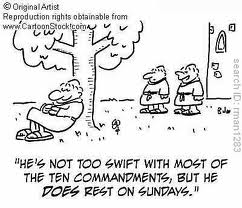
The day of the week to assemble should be the church’s choice, and many churches today have Saturday services as well as Sunday. The NT has no legislation for which day we are to assemble and history shows the early church chose Sunday because of its significance and not because they hated the Sabbath.
We can find 9 of the commandments from Ex.20:3-4 repeated in the New Testament but the 4thone is not. Maybe there is a reason for this. The Bible offers no command that we must assemble on the Sabbath (Saturday) for worship and there was absolutely no warning against Sunday worship.
At the Jerusalem council in Acts 15, dealing with how the Gentiles are to practice their Christianity, it does not mention the Sabbath. Paul states “for I testify again to every man that is circumcised, that he isa debtor to the whole law. (Gal.5:3) This can be substituted with any part of the Mosaic law; diet, clothing or the Sabbath. James and Hebrews were written to the dispersed Israel, but they never refer to continue keeping the Sabbath day because even Jewish believers were not obligated. Peter exhorts the leadership of the Church not to place the Gentiles under the Law:
Acts 15:10 Now therefore why tempt ye God, to put a yoke upon the neck of the disciples, which neither our fathers nor we were able to bear?11 But we believe that through the grace of the Lord Jesus Christ we shall be saved, even as they
What some have done is use fear and devious manipulation to prove one is under the wrath of God by simply worshipping on a day apart from the Covenant given to Moses!
Acts 15:28 For it seemed good to the Holy Ghost, and to us, to lay upon you no greater burden than these necessary things;29 That ye abstain from meats offered to idols, and from blood, and from things strangled, and from fornication: from which if ye keep yourselves, ye shall do well. Fare ye well.
Note that the Holy Spirit told them NOT to lay upon the Gentiles any greater burden than those essentials. It seems like the Holy Spirit didn’t think Sabbath keeping was essential thing any more. If we are to believe that we need to keep the Sabbath on Saturdays – just like they did in the OT – then the question is why we should pick and choose among the rules related to this special day, and why we should not also keep these instructions in mind:
-It was to be kept from sunset to sunset (Lev. 23:32)
-No burden was to be carried (Jer. 17:21)
-No fire kindled (Ex. 35:3)
-No Cooking done (Ex. 16:23)
-The penalty for doing any of these things during the Sabbath was DEATH (Numbers 15).
In the New Testament we are provided with lists of SINS that separate us from God and prevent us from entering his kingdom. These lists are often repeated. Nowhere is breaking the Sabbath listed as a sin that causes spiritual death.
If the Sabbath keeping is so important for a disciple of Christ, why didn’t Jesus or his apostles command Sabbath keeping?
We are often asked to find one verse in the Bible that shows the day of worship has been changed from Saturday to Sunday, but this is a moot point because it doesn’t matter what day you worship on.




